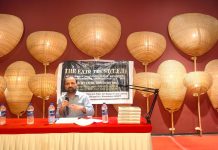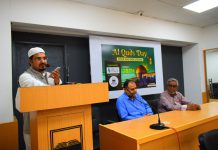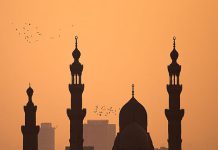Part 1’s link : http://millattimes.com/en/2016/12/02/the-long-journey-of-madrasas-part-1/
Prior to the setting up of the religious school in Kolkata in 1781, the British authorities had already banned all Muslim education institutes in this region in 1757, following the conquest of Bengal. This seminary founded by Warren Hastings in 1781 was only meant for religious education of the Muslims. After the completion of their education, the students of this madrasa were given the same type of duties which are given to the priests in Europe after the renaissance movement. The duties of the priests include baptising the new born babies, giving legal status to the newly-wed couples, performing the rituals of death and leading the church service on Sunday. Almost similar duties were assigned to those who received education from the seminary of Kolkata. Quite interestingly, Christian missionary schools were set up on the pattern of the old Muslim schools mentioned above. The first such Christian missionary school was opened in Kolkata in 1810. Its syllabus included all worldly sciences along with the Biblical Ethics and other Christian teachings. English was made the medium of instruction and the knowledge of English was made an essential prerequisite for getting all government jobs. The teaching of Quran and Sunnah which was expelled from all education institutes of the country was replaced by an optional subject called Islamic Studies. Education was confined to schools and colleges, as a result of which there was a sharp decline in the standard of education during the next 90 years. At last, in 1947, when the British rule came to an end, the literacy rate in the country was not more than 14 per cent. In this age of decline, the Muslim seminaries happily accepted the responsibilities given to them by the British. They fully focused on producing a whole generation of religious scholars, who made their best endeavours to preserve the teachings of Quran and Sunnah and spread them in every corner of the country. In the face of the onslaught of Western education and culture, the preservation of religious heritage and knowledge became the top priority for the Muslim madrasas. With full honesty and dedication, they fulfilled this responsibility. Facing all sorts of difficulties and challenges, they continued to function in the far flung villages of Baluchistan, burning deserts of Sindh, remote and backward districts of the Punjab and isolated towns situated in the mountainous region of KPK. Indifferent to the shortage of water, power, education and basic medical facilities, the qualified students of these seminaries open the door of the mosque in the early hours of the morning, straighten the rows of worshippers, give the Azan (call to prayer) and lead the five daily obligatory prayers. Far from having any regular or permanent source of income, they largely depend on the food they get from different homes and the offerings they receive from their people during the marriage and death rituals. Present in almost every region of the country, consciously or unconsciously, they have become the only symbol of keeping alive the name of Allah and His Prophet (PBUH). In case, they are no more present in our society, it would be extremely difficult for the people to find someone who could lead their prayers and even give the Azan. During the last two centuries, they have performed their duties most efficiently. None of them has ever locked any mosque as a mark of protest or as part of some strike. None of them has ever been late in leading the prayers.
They are present in every city, town, village and street of the country and even in those areas where they is no sign of government. If one happens to go to some remote village of the country, one might find no doctor in the government hospital and no teacher or student in the government school. But even in that area, one would surely find light, life and activity in the mosque, on account of the earnest efforts of the poverty stricken Maulvi. The same Maulvi has now become the object of hatred and hostility, only because knowingly or unknowingly, he has become the representative of Allah’s name. Whenever our “illustrious” intellectuals get a chance, they are very loud and vocal in their demand for the nationalisation of all such Madrasas. But they have never bothered to think what would happen if their demand is really met. Madrasas would collapse and crumble like all other institutions. There would be frequent protests, sit-ins, strikes and demonstrations by the Maulvis for the increase of their salaries and provision of other facilities. Mosques would be frequently locked and the academic activities in the Madrasas would be brought to a standstill. I fully agree with the logic of these “great” intellectuals who demand that computer, English and modern scientific subjects should also be taught in religious schools, so that students could make spiritual and material progress at one and the same time. But is it not wise to apply the same logic to our secular schools, colleges and universities by teaching Quran and Hadith to their students, so that good human beings could be produced and a single unified education system could be evolved in the country for all people? The only motive behind the vicious propaganda against the Madrasas is to remove every sign of the teachings of Allah and His Prophet (PBUH) from our educational system. It is being described as a necessary condition for peace in the country. By the end of the 19th century, religion had been cast out of education in Europe. But did it bring about the long awaited peace in that continent? The two world wars that claimed millions of innocent lives tell a totally different story. Perhaps, our people have forgotten the lessons of history, or they are in no mood to recall them.
















